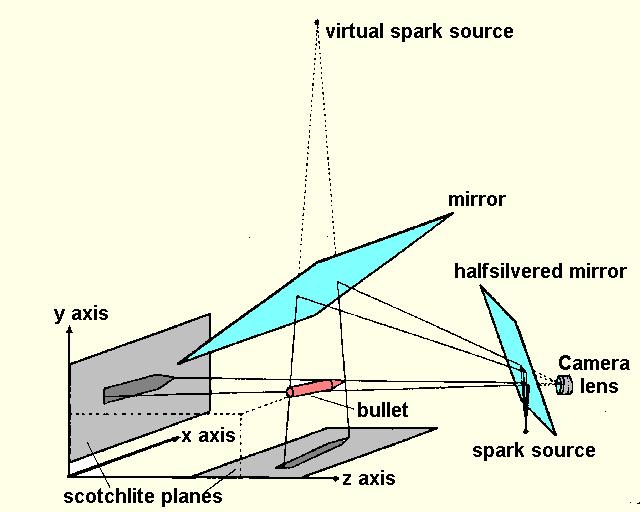

The drawing schematically shows the experimental set-up, which can be applied to determine the yawing motion of spin-stabilized bullets.
After entering a photographic station, a light flash of short duration (typically 1 millionth of a second or less) is triggered as the bullet passes through a light barrier. By means of two mirrors (see figure above) the bullet, at the same instant, is illuminated from two mutually perpendicular directions. A camera is focused on the shadowgraphs of the bullet on the two scotchlight planes. By means of this technique, the film in the camera shows two different views of the bullet. The measurements of the visible bulletīs contour are used to determine its spatial yaw angle, the angle of precession and the location of the bulletīs CG.
Multiple photographic stations can be mounted behind each other, allowing to evaluate the yaw angle d as a function of the shooting distance x.